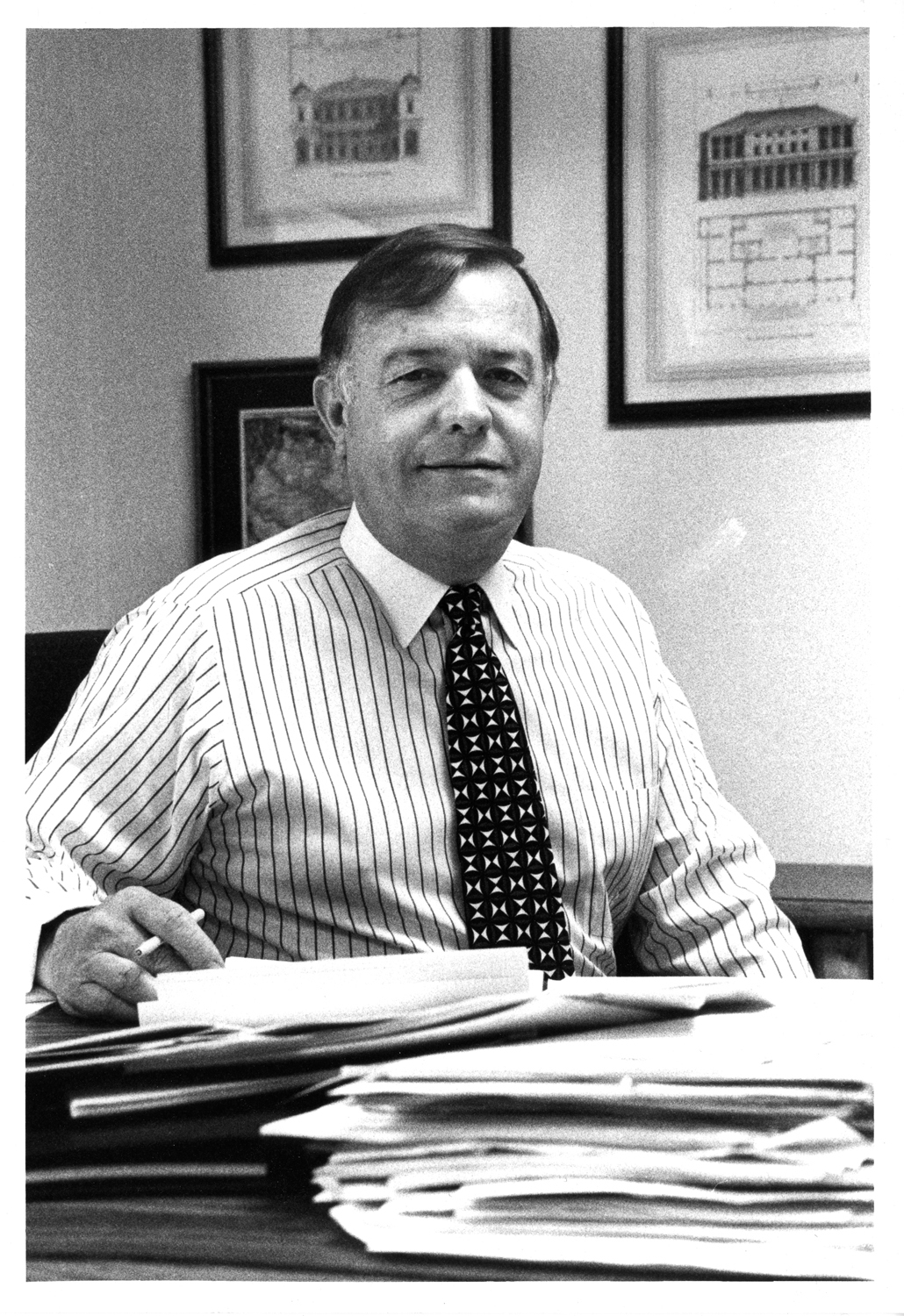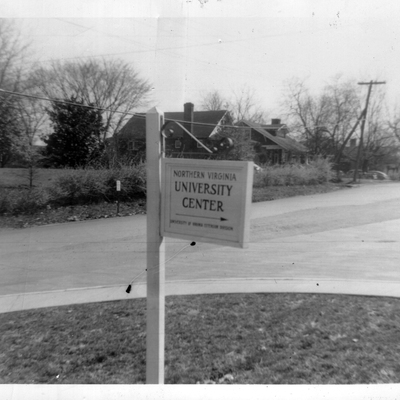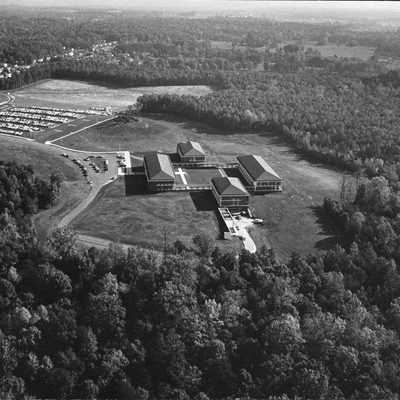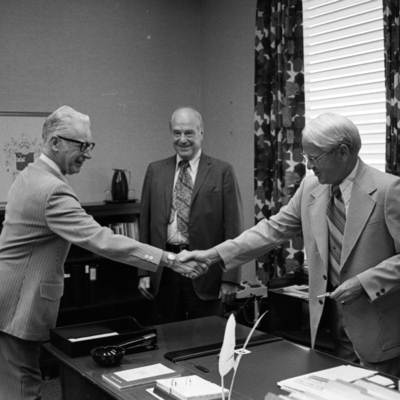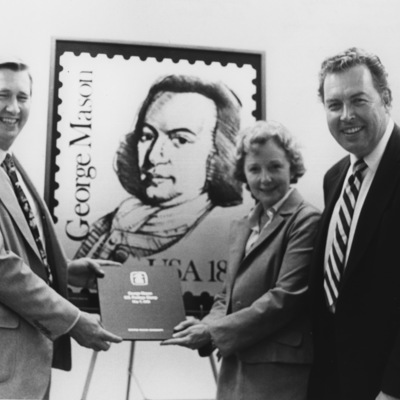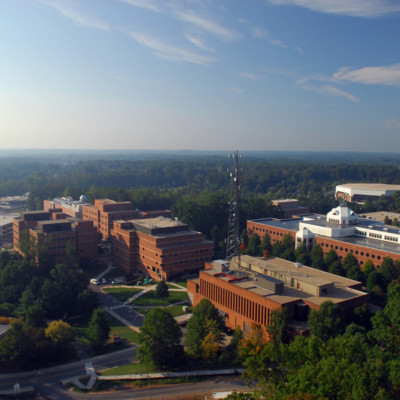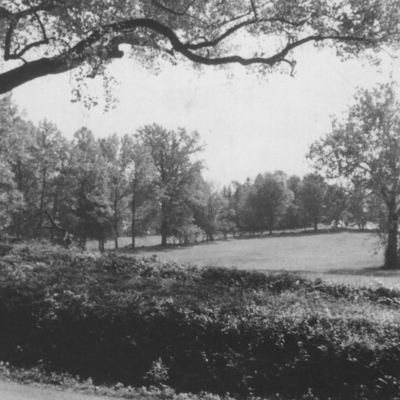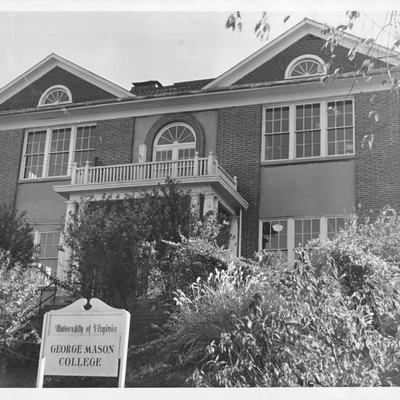The School of Public Policy
The School of Public Policy was one of many innovative interdisciplinary programs introduced at Mason during the 1980s and 1990s. It began as the Institute for Public Policy (TIPP) in 1990. A task force had been created in 1987 to discuss the feasibility of such an institute, and in 1988 their proposal was the recipient of the Smith-Richardson Foundation Organizing Grant. [1] The next year, two endowments were established: the professorships of the Hazel Chair(s) and the Northern Virginia Chair. In 1992, a Ph.D. program was established, and by 1994, TIPP was developing an interdisciplinary Master’s degree in Economic Development and Technology in partnership with the Schools of Business Administration and Information Technology and Engineering. The Institute for Conflict Analysis and Resolution, the departments of Economics, Public and International Affairs, and Communication in the College of Arts and Sciences were also involved. [2] These developments promoted the goals of the Institute: “[t]he free-standing structure of the institute and its commitment to interdisciplinary training and research at the doctoral level will allow it to reach across the university’s schools and colleges to bring together knowledge and skills needed to address a wide variety of policy concerns”—concerns ranging from public policy management and science/technology policy to health policy and human resource policy. [3]
By incorporating economics, public administration, business, law, information technology, and the liberal arts, as well as “American ideas, practices, and traditions” into its curriculum, TIPP understood that “future policy leaders will need a firm grounding in history, ethics, and world culture if our country is to deal successfully with its budget, the trade deficit, and jobs for all its citizens. This will be part of George Mason’s contribution to correcting wrong-headed policies.” [4]
In 1994, TIPP was awarded a $181 million contract as part of an area consortium through the Defense Information Systems Agency of the United States Department of Defense. [5] Within the first five years of its existence, TIPP had also brought in over $8 million in research funds and had established partnerships with universities in Mexico, Taiwan, Australia, the Netherlands, and Japan. [6]
In 1997, the Entrepreneurship Center, established in 1985 as a “leading innovator in delivering high-impact business development assistance to small businesses,” came under the direction of TIPP. [7] The Entrepreneurship Center provided services that ranged from business counseling and micro-loans to computer-based training and telework facilities. The Center came to TIPP “in an attempt to help promote good relations between George Mason University and the Northern Virginia business community.” [8] While focusing on regional development with the Entrepreneurship Center, TIPP’s goals also took on a broader perspective through its dealings with the International Institute. The Institute for Public Policy only granted doctoral degrees until it absorbed the Master of Arts in International Transactions degree following the dissolution of the International Institute in 1997. This arrangement expanded the curriculum, increased faculty and resources, and gave students access to TIPP’s relationships with other universities all over the world. [9] The Institute’s global focus then became increasingly noticeable. In 1998, TIPP led an International Electronic Commerce (EC) Consortium with universities in Peru, South Korea, and China. [10] That same year, it had also developed close partnerships with universities in Taiwan following George Mason’s hosting of the World Congress on Information Technology. TIPP, partnered with Germany’s University of Bremen and BALance Technology Consulting, then hosted MAREXPO, a European Union-sponsored working group focused on research and development in information technology in shipbuilding. The invitation-only event was one of twelve conferences, and TIPP’s program at George Mason University was the only one in the United States; TIPP’s electronic commerce (EC) research had captured the attendees’ attention. [11] International exposure, partnerships, and research led to increased publicity and acclaim for the Institute of Public Policy, which became the School of Public Policy (SPP) in 2000 with the Board of Visitors’ approval and was described by some as the fastest-growing field in the University. [12]
In 2001, the School of Public Policy ranked fifth nationally in the total amount of research and development funds it received, and second nationally in federal funding for research and development. [13] Its five concentrated areas of study—national governance and public management, transportation and regional development policy, international commerce and policy, science and technology policy, and the role of culture and values in policy formation—“distinguished [SPP] from other leading schools in that [they] place emphasis on the interactions between the stabilizing influences of diverse national, ethnic, and regional cultures on individual and institutional behaviors, and on the sustained challenges to the established order of the continual innovation of new technologies. SPP also focuses on the rapidly eroding barriers and emerging partnerships between what have traditionally been the public and private sectors in Western democracies.” [14]
These objectives were stated succinctly by former Dean of the School of Public Policy, Kingsley Haynes: “[w]e want…to act as an international beacon for integrating regional and national support to carry out domestic and global international functions in the public and private sectors.” [15] His vision of acting as an “international beacon” was not limited to the School of Public Policy. As George Mason entered the new millennium, its desire to reach and serve a global community would shape the course of its policies and the future of the University.
Browse items related to the Institute for Public Policy.
